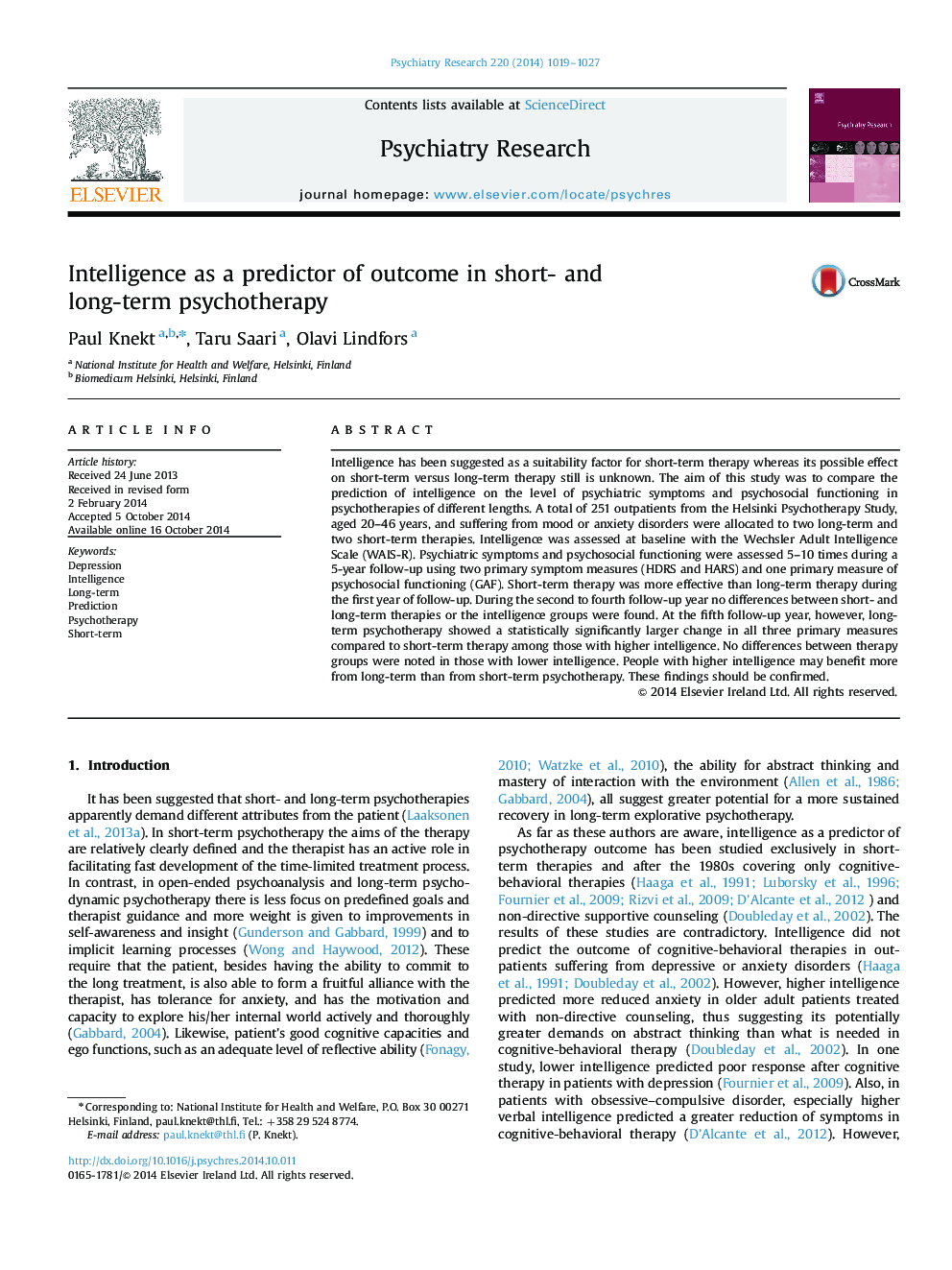| کد مقاله | کد نشریه | سال انتشار | مقاله انگلیسی | نسخه تمام متن |
|---|---|---|---|---|
| 6814702 | 545876 | 2014 | 9 صفحه PDF | دانلود رایگان |
عنوان انگلیسی مقاله ISI
Intelligence as a predictor of outcome in short- and long-term psychotherapy
ترجمه فارسی عنوان
هوش به عنوان پیش بینی کننده نتیجه در روان درمانی کوتاه مدت و بلند مدت
دانلود مقاله + سفارش ترجمه
دانلود مقاله ISI انگلیسی
رایگان برای ایرانیان
کلمات کلیدی
افسردگی، هوش طولانی مدت، پیش بینی، روان درمانی، کوتاه مدت،
موضوعات مرتبط
علوم زیستی و بیوفناوری
علم عصب شناسی
روانپزشکی بیولوژیکی
چکیده انگلیسی
Intelligence has been suggested as a suitability factor for short-term therapy whereas its possible effect on short-term versus long-term therapy still is unknown. The aim of this study was to compare the prediction of intelligence on the level of psychiatric symptoms and psychosocial functioning in psychotherapies of different lengths. A total of 251 outpatients from the Helsinki Psychotherapy Study, aged 20-46 years, and suffering from mood or anxiety disorders were allocated to two long-term and two short-term therapies. Intelligence was assessed at baseline with the Wechsler Adult Intelligence Scale (WAIS-R). Psychiatric symptoms and psychosocial functioning were assessed 5-10 times during a 5-year follow-up using two primary symptom measures (HDRS and HARS) and one primary measure of psychosocial functioning (GAF). Short-term therapy was more effective than long-term therapy during the first year of follow-up. During the second to fourth follow-up year no differences between short- and long-term therapies or the intelligence groups were found. At the fifth follow-up year, however, long-term psychotherapy showed a statistically significantly larger change in all three primary measures compared to short-term therapy among those with higher intelligence. No differences between therapy groups were noted in those with lower intelligence. People with higher intelligence may benefit more from long-term than from short-term psychotherapy. These findings should be confirmed.
ناشر
Database: Elsevier - ScienceDirect (ساینس دایرکت)
Journal: Psychiatry Research - Volume 220, Issue 3, 30 December 2014, Pages 1019-1027
Journal: Psychiatry Research - Volume 220, Issue 3, 30 December 2014, Pages 1019-1027
نویسندگان
Paul Knekt, Taru Saari, Olavi Lindfors,
